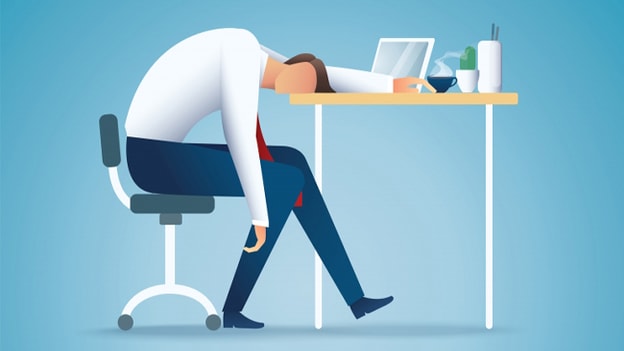Remote working: Causing fatigue rather than comfort

No commute, no rush for office, no traffic snarls, your office is just a minute away? Sounds like a dream right or a wish come true? Well, the dream came true last year with the pandemic forcing people to work from home. Although organizations and employees embraced the work from home culture with some trepidation (from management side) and excitement (from employee side) it seems that this dream is not as rosy as it seemed to be. So as they say, be careful of what you wish for!
In mid-March 2020, suddenly, everything came down to either zoom or MS teams meeting. No tension of repeating clothes, travel. So much time saved which could lead to more productivity. It seemed too good. But then we realised these small interim meaningless “waste of time” activities served another purpose. They would help us to take a break from work and rejuvenate ourselves to be more productive. Continuous work whether it's office related or housework is creating a different kind of fatigue. People are suffering from sleeplessness, depression, and out of sorts feelings which are very difficult to come out of.
Our analysis of twitter feeds on work from home during the pandemic, found that the majority did not enjoy work from home. The sentiment analysis showed a relatively less percentage of positive tweets after four months from when the “work from home” started compared to the first month.
The reasons for negative sentiments were 37% Fatigue (tiredness, lethargy, exhaustion), 35% loneliness, 21% anxiety, 7% calls at odd hours. Positive sentiment related to increased family time (27%), time spent on hobbies and interests (11%), no travel (20%) among others.
Forbes study found that work from home was exhausting because there is no autonomy in choosing whether to work from home or office.
Those living alone are specially finding this forced isolation even more trying. The pressure of showing that they are working to their bosses for fear of labelled as slackers, or getting laid off, contributes to the long working hours and no relief from any co-worker problems or jokes. A study by Fast track reported, employees are clocking in on an average of 4.15 extra hours per day making it more than 60 hours per week. WHO has declared that working more than 55 hours a week can lead to serious mental & health issues. Also with the pandemic, the worry about the virus, health, family, children drains more of their energy.
Since the timelines get blurred and people do not have to follow a strict office regime, people started to have erratic work schedules. Sometimes going late at night and getting up late which further disrupts the body clock causing lethargy. Since everyone’s home schedules due to family issues are different, more and more people start to work on their own in isolation and merge their work later, sometimes meeting once or twice a week. Add to that the stress of finding personal space in houses as multiple people try to work together attending/conducting online classes, zoom meetings, phone calls and managing small kids and household chores causing frustration.
The place of work and home has merged into one from earlier two separate locations. But we did not have just 2 places traditionally. We had the third space- The Watercooler or the social interaction. With the meetings and work, we used to gather at common areas for coffee breaks/ lunch and discuss various issues right from talking about colleagues/bosses/clients to politics, family, shopping and what not engaged the employees and gave them a feeling of belongingness. This acted as a moderator to the work fatigue which is missing nowadays, with people anxiously waiting to get back to offices and their “Third Place”.
This lack of social interaction among the employees is causing resinous concern in the remote working agenda, and some organizations who have declared work from home for future also may rethink their decision in consideration of the physical and mental health of the employees.
















